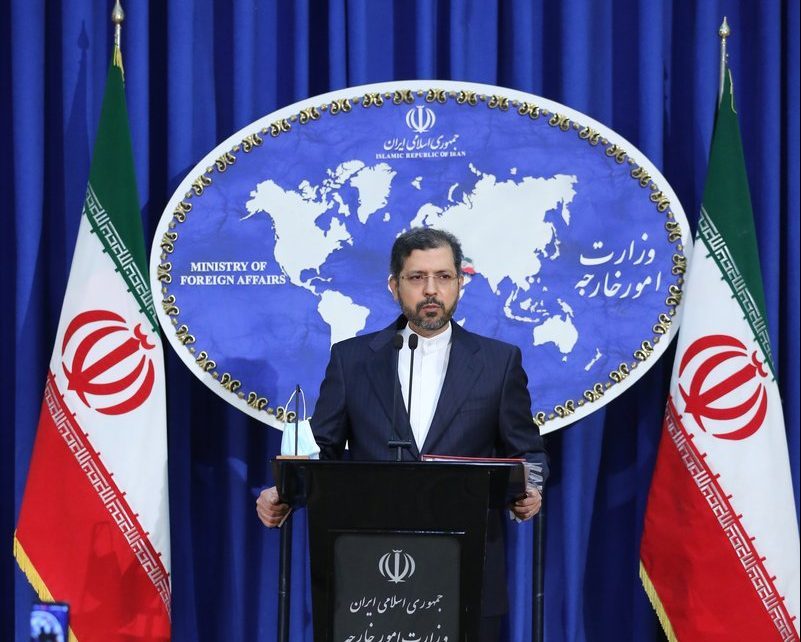Vienna talks kicked off on April 6th with eyes on reviving the 2015 nuclear deal and lifting sanctions on Iran.
Iran condemned an “irresponsible and immature” statement issued by the Gulf Cooperation Council [GCC] that called for the bloc to participate in ongoing nuclear talks.
“Their goal in bringing up such statements is to not ask for participation but to disrupt the process of technical talks in Vienna,” said Iran’s Foreign Ministry spokesperson Saeed Khatibzadeh.
“[GCC leaders] must know that Iran is a member of the International Atomic Energy Agency and all its nuclear activities are under the organisation’s monitoring programmes, and it is obvious that their development is in line with Iran’s legitimate rights, based on its national interests, and to account for its peaceful needs”, he added.
Khatibzadeh called for officials to shift their attention towards the military and illegal nuclear activities of the Israeli regime, which it accused of being behind the attack on the Natanz nuclear facility.
Following Iran’s decision to ramp up its nuclear enrichment at 60% purity as a response to the attack last week, GCC Secretary General Nayef Al-Hajraf said the current Vienna talks must also tap into Iran’s “destabilising behaviour and ballistic missiles”.
In a letter sent to the foreign ministers of the the UN Security Council’s five permanent members [p5+1] on Wednesday, Al-Hajraf said the GCC is core to the strengthening of regional security and stability, calling for the inclusion of the bloc in the talks.
Meanwhile, the Secretary General of the Arab League Ahmed Aboul Gheit also expressed concern over Iran’s decision, accusing the Islamic Republic of taking a step towards developing a nuclear weapon.
“This decision is a dangerous development because it it is a clear step towards development of a nuclear weapon, which contributed to doubts over the real objectives of Iran’s nuclear programme,” the official said.
However, Iranian officials said that the enriched uranium is set to be used to produce molybdenum to manufacture radiopharmaceuticals.
“If the Zionists conspire against our nation, we will respond. This [60% uranium enrichment] is the first step,” Iranian President Hassan Rouhani told a cabinet meeting on Wednesday, vowing to take revenge for the Sunday attack.
Read also: Iran’s nuclear enrichment ‘against the spirit of Vienna talks’
The nature of the attack remained unclear until Iranian state television revealed on Saturday that an explosion struck the Natanz facility, naming 43-year-old Reza Karimi as the suspect behind the ambush.
Karimi reportedly fled the country hours before the attack.
The TV report said that there was a “limited explosion of a small part of the electricity-feeding path to the centrifuges’ hall” clarifying “there was no cyberattack.”
The assault came at a crucial time as powers involved in the Joint Comprehensive Plan of Action [JCPOA]- UK, France, China, Russia, the US and Germany – continue to hold talks in Vienna in efforts to revive the accord.
Mikhail Ulyanov, Russia’s representative at the talks, said working groups on US sanctions and nuclear issues are set to continue talks from Saturday.
Up until the attack struck, the indirect negotiations between the US and Iran yielded positive signs with the two parties agreeing on forming two working groups to ensure compliance in the accord – one to oversee the lifting of sanctions on Tehran and another to monitor its limitation of nuclear activity.







